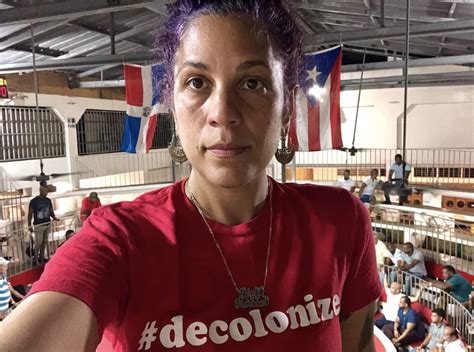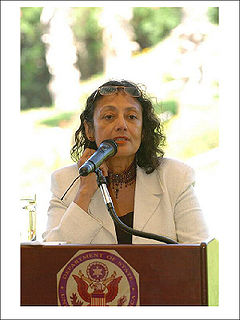A Quote by Ayanna Pressley
My mother lost her job, so I left school to work full-time to support her.
Related Quotes
My mother didn't feel sorry for herself, she was left with no child support, no alimony at a very young age, with a child to raise, a high school education and she just figured it out. She didn't complain, she didn't rely upon government, she relied upon her own skill set, her own self confidence, her own drive in moxie and her own duty to me and her and she relied upon her family and her faith.
When my daughter went to school, her last name was mine. The school insisted that her father's name be added to hers, not her mother's. The fact that the mother kept her in her womb for nine months is forgotten. Women don't have an identity. She has her father's name today and will have her husband's tomorrow.
As Anna Freud remarked, the toddler who wanders off into some other aisle, feels lost, and screams anxiously for his mother neversays "I got lost," but accusingly says "You lost me!" It is a rare mother who agrees that she lost him! she expects her child to stay with her; in her experience it is the child who has lost track of the mother, while in the child's experience it is the mother who has lost track of him. Each view is entirely correct from the perspective of the individual who holds it .
One thing I did have under my belt was, my mother lost her mother when she was 11. She mourned her mother her whole life and made my grandmother seem present even though I never met her. I couldn't imagine how my mom could go on but she did, she took care of us, she worked two jobs and had four children. She was such a good example of how to conduct oneself in a time of grief. When I lost my husband, I tried to model myself as much as I could on her.
I was born into the Chicago branch of Negroland. My father was a doctor, a pediatrician, and for some years head of pediatrics at Provident, the nation's oldest black hospital. My mother was a social worker who left her job when she married, and throughout my childhood, she was a full-time wife, mother, and socialite.
When I was growing up my mom was home. She wanted to go to work, but she waited. She was educated as a teacher. The minute my youngest sister went to school full-time, from first grade, mom went back to work. But she balanced her life. She chose teaching, which enabled her to leave at the same time we left, and come home pretty much the same time we came home. She knew how to balance.
My mother grew up in abject poverty in Mississippi, an elementary school dropout. Yet, with the support of women around her, she returned to school and graduated as class valedictorian - the only one of her seven siblings to finish high school. She became a librarian and then a United Methodist minister.
Mother Teresas detractors have accused her of overemphasizing Calcuttans destitution and of coercing conversion from the defenseless. In the context of lost causes, Mother Teresa took on battles she knew she could win. Taken together, it seems to me, the criticisms of her work do not undermine or topple her overall achievement.
Mother Teresa's detractors have accused her of overemphasizing Calcuttans' destitution and of coercing conversion from the defenseless. In the context of lost causes, Mother Teresa took on battles she knew she could win. Taken together, it seems to me, the criticisms of her work do not undermine or topple her overall achievement.
But that wasn´t the first time I ever saw her. I saw her in the hallways at school, and at my mother’s false funeral, and walking the sidewalks in the Abnegation sector. I saw her, but I didn’t see her; no one saw her the way she truly was until she jumped. I suppose a fire that burns that bright is not meant to last.
Part a of scene from 'Bitterblue' between Madlen (Bitterblue's medicine woman) and Bitterblue: Madlen came to sit beside her [Bitterblue] on the bed. "Lady Queen," she said with her own particular brand of rough gentleness. "It is not the job of the child to protect her mother. It's the mother's job to protect the child. By allowing your mother to protect you, you gave her a gift. Do you understand me?
It is as great a crime to leave a woman alone in her agony and deny her relief from her suffering as it is to insist upon dulling the consciousness of a natural mother who desires above all things to be aware of the final reward of her efforts, whose ambition is to be present, in full possession of her senses, when the infant she already adores greets her with its first loud cry and the soft touch of its restless body upon her limbs.

































